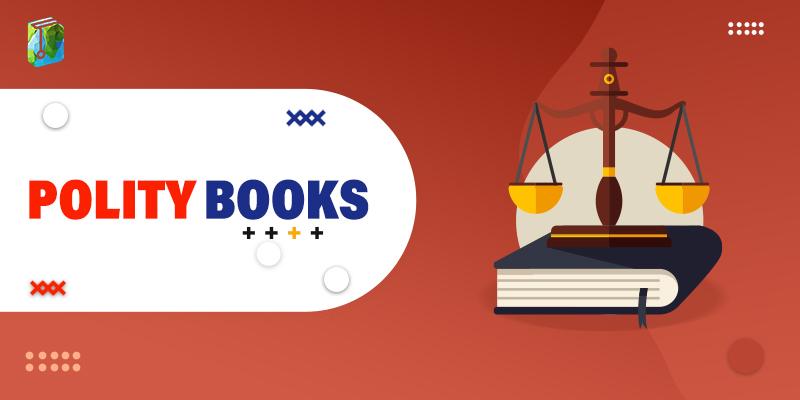Political science is a valuable subject, rendering us the knowledge of the state, including its origins, nature, framework, and operations. Both the sovereign and the republic can benefit from the study of political science and polity books.
Administrators, political figures, and diplomats who manage the state’s relationships must have a thorough understanding of the subject to carry out their duties effectively. Its study is important for developing citizenship and ensuring national unity.
With the advent of globalization, people all over the world have become increasingly interested in learning about other nations’ political systems. Each year, numerous books on political science are published, but only a few of them survive the test of time.
Documenting a comprehensive list of the top polity books is a monumental task. We believe this list will serve as a good starting point for those interested in learning more about political history and understanding some key political theories and concepts. Read on, here’s your checklist.
Top 10 Polity Books
1. The Republic
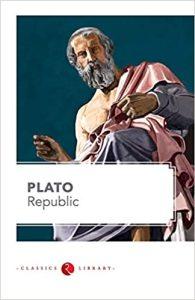
Highlights
Author: Plato
Publication Year: 2013
Publisher: Rupa Publication
Plato’s Republic is a Socratic discussion written around the year 375 BCE. Even after centuries, it’s considered one of the best polity books out there. Herein, Plato asserts that knowledge should be used to determine who should govern the citizens because those with the most knowledge and experience, in Plato’s opinion, will be the most effective and fair leaders.
This document was written before the term democracy was coined as a political concept. Plato’s concept of a republic led by intellectuals is not widely used in today’s modern states. In the west, however, it was a fundamental political document during the period.
You can buy this book from here.
2. The Social Contract
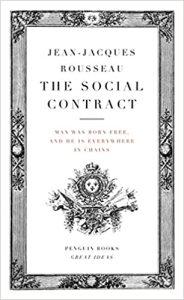
Highlights
Author: Jean-Jacque Rousseau
Publication Year: 2004
Publisher: Penguin
In 1762, French philosopher Jean-Jacque Rousseau authored this opinion piece on the social contract between people and governments. His “social contract” is based on the idea that laws are only valid if they are endorsed by the people consentingly. This concept elevates the people’s will above the government’s authority, which was in direct contradiction to French governance during the period.
The French monarchy was assumed to be divinely conferred the right to rule in Rousseau’s time. And, the monarchs could, of course, pass laws without taking into consideration what people wanted. Rather, they frequently supported laws that benefited a select few. Rousseau’s radical document became a foundation text for the French Revolution and the political reformation that followed.
You can buy this book from here.
3. The Communist Manifesto
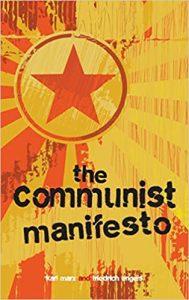
Highlights
Author: Marco Pedulla
Publication Year: 2010
Publisher: Simon & Brown
Karl Marx and Friedrich Engels penned the Communist Manifesto in 1848. It outlines the authors’ idea of historical materialism. This helps in tracing history from feudalism to capitalism and then to Communism. They discuss the idea of class conflict, demonstrating how the bourgeoisie consistently exploits the working class and causes it to become impoverished. As a result, a violent class revolution occurs, in which the working class overthrows capitalism, becomes the ruling class, and declares private property illegal.
A fair progressive tax, nationalization of all properties, dissolution of privately owned property, abolishment of child labor, and the right to free education for all classes are among the demands made by the two authors in the 2nd section of the work. The work’s final section then differentiates Communism from other socialist ideologies.
You can buy this book from here.
4. The Wealth of Nation
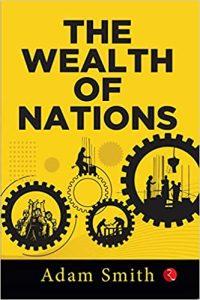
Highlights
Author: Adam Smith
Publication Year: 2021
Publisher: Rupa Publications
Adam Smith, a Scottish economics expert, wrote The Wealth of Nations, which was published in 1776. For those who believe in capitalism, the book is nothing short of a Bible. Its importance as one of the top polity books cannot be undermined.
Smith asserted in his book that a nation’s economy should be regulated by the free market and that the government has nothing to do with it. Smith believed that the governing body has a responsibility to play in the economic development limited to certain areas. Since one of the government’s functions is to protect citizens from foreign invasions, the government must maintain a military force.
Furthermore, the government must provide infrastructure, such as roads and bridges, to facilitate commercial activity. Finally, a legal system must be established to create and enforce laws that primarily protect economic transfers in a free economy.
You can buy this book from here.
5. The Prince
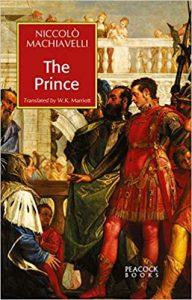
Highlights
Author: Niccolo Machiavelli
Publication Year: 2015
Publisher: Fingerprint! Publication
Niccolo Machiavelli wrote The Prince in 1513, but it was printed only after his death in 1532. It has become one of the most divisive books in political history. The Prince is essentially a manual for rulers on how to gain power.
It’s all about authority for Machiavelli. For him, any action that aids in the acquisition of more authority is moral and ethical. As a result, for a ruler, the possession of power is more important than morality and righteousness. Power should be a concern for leaders because it is the only thing that can ensure their survival and the preservation of the state. The use of force is the most efficient way to keep power.
In addition, the book explores the qualities that a successful ruler must possess, as well as the policies that he must implement to stay in power. Although the book seems to be out of sync, it is still among the most influential polity books out there.
You can buy this book from here.
6. My Seditious Heart
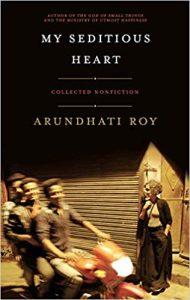
Highlights
Author: Arundhati Roy
Publication Year: 2019
Publisher: Penguin Hamish Hamilton
My Seditious Heart gathers Arundhati Roy’s work over a twenty-year period in which she dedicated herself to the political articles and essays as a means of allowing justice, rights, and freedoms to flourish in a growingly hostile atmosphere.
These essays follow her twenty-year journey from the Booker prize-winning book, The God of Small Things to the exceptional The Ministry of Utmost Happiness, which is marked by sympathy, clarity, and courage.
From ‘The End of Imagination,’ which starts the book, to ‘My Seditious Heart,’ which closes it, the documents form a closer memoir of Arundhati Roy’s journey as both an author and a civilian.
You can buy this book from here.
7. Long Walk to Freedom
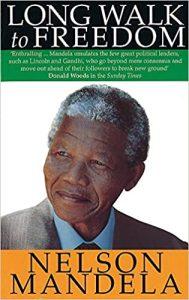
Highlights
Author: Nelson Mandela
Publication Year: 1995
Publisher: Abacus
Nelson Mandela’s autobiography was published in 1994, the same year he went on to become the President of South Africa. This book was released at the start of his presidency, and it focuses primarily on his anti-apartheid activism, which led to his 27-year detainment.
Although this is a memoir rather than a political essay, it is an important text on governments’ racial oppression and how South Africa transitioned to a majority rule government system under Mandela’s governance.
You can buy this book from here.
8. The Free Voice
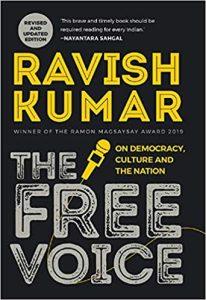
Highlights
Author: Ravish Kumar
Publication Year: 2018
Publisher: Speaking Tiger Publishing Pvt Ltd
Ravish Kumar is one of India’s bravest and most sophisticated public voices in times when freedom of speech expression and liberty appears to be a major threat. Few journalists today have such a thorough understanding of Indian society and politics, as well as such a strong commitment to reporting the truth. Few people can match his eloquence and honesty.
In this book, he analyses why insensitive debate and discussion have given way to intolerance and hatred in India. He also discusses how elected officials, the media, and other organizations have failed us, and how we can restore the damage done to our democracy.
You can buy this book from here.
9. As Long As Grass Grows
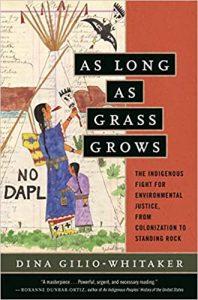
Highlights
Author: Dina Gilio-Whitaker
Publication Year: 2020
Publisher: Beacon Press
Dina Gilio-Whitaker, a Native researcher and an environmental activist published this collection in 2019. It explores the relationship between Native people and American colonists, as well as a brief history of Indigenous revolutionary movements in response to colonization. It’s an important look at the history of civil disobedience movements and the leadership native people have provided over hundreds of years.
The collection also investigates the relationship between Indigenous groups of people and the modern environmental movement. Its final chapters are a look ahead at what a sustainable and just partnership between Native Americans and the US could look like. This is a highly crucial issue of our time but sadly not given enough attention.
You can buy this book from here.
10. Leviathan
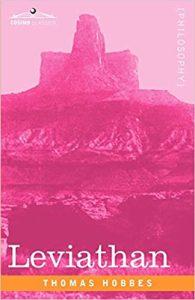
Highlights
Author: Thomas Hobbes
Publication Year: 2008
Publisher: Cosimo Classics
Leviathan, which was authored and published in 1651, is another must-read for somebody interested in polity or philosophy. Hobbes attempted to explain why citizens crave the establishment of a strong centralized state in his work.
The author believed that life is a power struggle. People, according to him, are self-centered, egocentric, and always on the lookout for power. This leads to conflict, and in the absence of a strong government, only the powerful will survive. As a result, in a state where no government exists, there is endless tension and violence. People willingly give up their liberties in exchange for the establishment of a state that ensures their security.
Hobbes made the argument that a monarchy, in which the monarch is above the law, is the most stable civilization for individuals. He believed that the function of government would be to provide security to its citizens rather than to advocate for concepts, such as justice or economic equality.
You can buy this book from here.
Conclusion
A polity can help you understand the political institutions and laws surrounding the citizens and how they help in running such large nations smoothly. It also helps pupils improve their understanding of organizational dynamics and human relations, as well as their political views, dialogue, and statistical skills.
A polity can be interlinked with various other topics like Social Science, Public relations, and more. Hopefully, this list of the top ten polity books will broaden your understanding of the fundamental concepts of politics and current political issues.
People are also reading:

